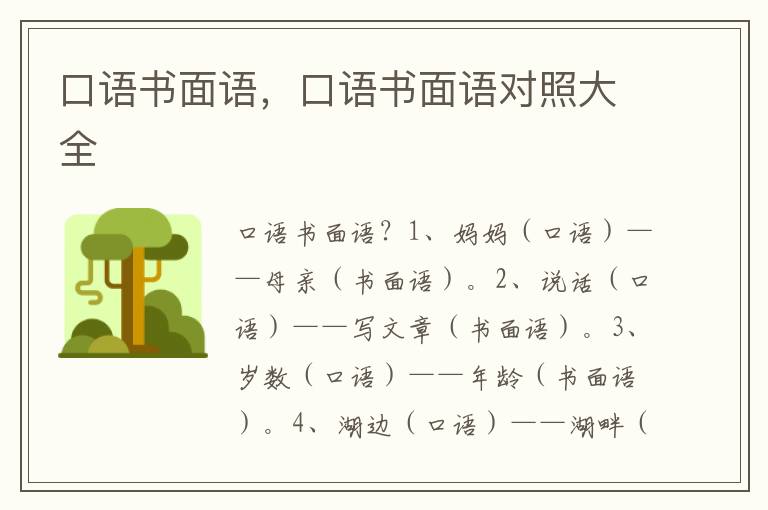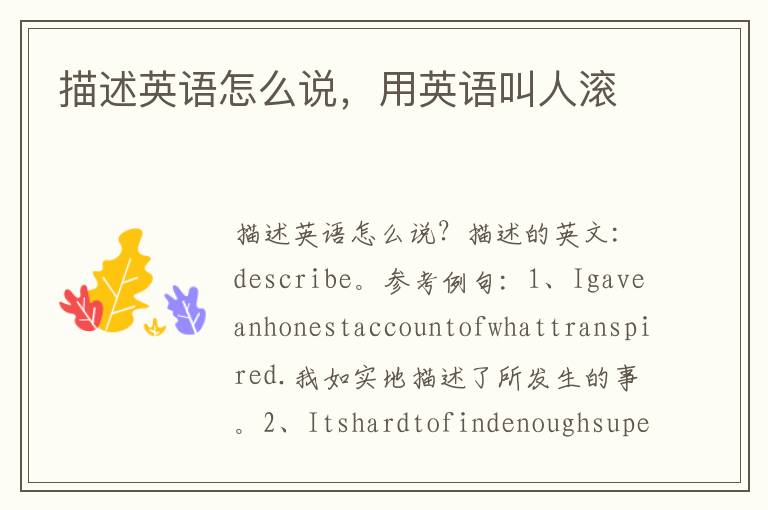【简介】感谢网友“雕龙文库”参与投稿,这里小编给大家分享一些,方便大家学习。
Fourteenth Amendment
The Fourteenth Amendment to the United States Constitution, ratified in 1868, prohibits state governments from denying citizens the equal protection of the laws. Although precisely what the framers of the amendment meant by this equal protection clause remains unclear, all interpreters agree that the framers immediate objective was to provide a constitutional warrant for the Civil Rights Act of 1866, which guaranteed the citizenship of all persons born in the United States and subject to United States jurisdiction. This declaration, which was echoed in the text of the Fourteenth Amendment, was designed primarily to counter the Supreme Courts ruling in Dred Scott v. Sandford that Black people in the United States could be denied citizenship. The act was vetoed by President Andrew Johnson, who argued that the Thirteenth Amendment, which abolished slavery, did not provide Congress with the authority to extend citizenship and equal protection to the freed slaves. Although Congress promptly overrode Johnsons veto, supporters of the act sought to ensure its constitutional foundations with the passage of the Fourteenth Amendment.
第一段:14修正案禁止政府否认法律对公民的平等保护equal protection of the laws
虽然不太明白提案者这么说的具体意义,但所有解释都认同提案者的直接目的是为Civil Right Acts提供支持,这个Act的内容是保证所有出生于美国的并遵从美国法律的公民的市民权citizenship。14修正案重提Act的内容主要是为了反对最高法院Super Court的黑人应该没有citizenship这一判决。Act被总统否定了,他认为13修正案中废除了奴隶制,但没有向国会提供将citizenship和equal protection扩展到黑人的权力authority。尽管国会又否决了总统的否定,Act的支持者们仍然去寻找Act的宪法基础constitutional foundations,这样就有了14修正案。
The broad language of the amendment strongly suggests that its framers were proposing to write into the Constitution not a laundry list of specific civil rights but a principle of equal citizenship that forbids organized society from treating any individual as a member of an inferior class. Yet for the first eight decades of the amendments existence, the Supreme Courts interpretation of the amendment betrayed this ideal of equality. In the Civil Rights Cases of 1883, for example, the Court invented the state action limitation, which asserts that private decisions by owners of public accommodations and other commercial businesses to segregate their facilities are insulated from the reach of the Fourteenth Amendments guarantee of equal protection under the law.
第二段:14修正案所用的broad language强烈地表明了提案者的目的并不是要提出谁的权力应该受保护的名单,而是要在宪法中建立建立这样一个原则:任何一个个人都不应该被当做低等阶层对待。但是14修正案提出后的80年间,最高法院对它的解释违背了它的这个平等的想法。举例:1883年的Civil Rights Cases中最高法院发明了state action这样的一个限制,将public accommodations and other commercial businesses所有者的四人决定孤立于14修正案的法律平等保护之外。
After the Second World War, a judicial climate more hospitable to equal protection claims culminated in the Supreme Courts ruling in Brown v. Board of Education that racially segregated schools violated the equal protection clause of the Fourteenth Amendment. Two doctrines embraced by the Supreme Court during this period extended the amendments reach. First, the Court required especially strict scrutiny of legislation that employed a suspect classification, meaning discrimination against a group on grounds that could be construed as racial. This doctrine has broadened the application of the Fourteenth Amendment to other, nonracial forms of discrimination, for while some justices have refused to find any legislative classification other than race to be constitutionally disfavored, most have been receptive to arguments that at least some nonracial discriminations, sexual discrimination in particular, are suspect and deserve this heightened scrutiny by the courts. Second, the Court relaxed the state action limitation on the Fourteenth Amendment, bringing new forms of private conduct within the amendments reach.
第三段:二战后,最高法院积聚了一个对equal protection更友好的法律氛围,它认为种族隔离的学校违背了14修正案的平等条款。这一时期,最高法院支持了2个扩展14修正案覆盖范围的文件。第一个:要求立法的严格审核,应用了怀疑分类法,。。。这个文件扩展了14修正案的应用,将他扩展到非种族的歧视。因为尽管某些人拒绝找除种族之外的歧视,大部分人接受这样一种论断:至少有一些种族歧视以外的歧视,特别是性别歧视,是可疑的并应该受到严格审查。第二个:最高法院取消了state action limitation,使得14修正案可以应用的范围包括了新形式的私人行为。
以上就是关于14修正法案的新GRE阅读机经,希望能够帮助各位考生更好地备考新GRE。大家可以进行认真阅读以上新GRE阅读文章,从中推断出出题人的出题思路,总结出新GRE阅读的解题,做到杀G成功!
Fourteenth Amendment
The Fourteenth Amendment to the United States Constitution, ratified in 1868, prohibits state governments from denying citizens the equal protection of the laws. Although precisely what the framers of the amendment meant by this equal protection clause remains unclear, all interpreters agree that the framers immediate objective was to provide a constitutional warrant for the Civil Rights Act of 1866, which guaranteed the citizenship of all persons born in the United States and subject to United States jurisdiction. This declaration, which was echoed in the text of the Fourteenth Amendment, was designed primarily to counter the Supreme Courts ruling in Dred Scott v. Sandford that Black people in the United States could be denied citizenship. The act was vetoed by President Andrew Johnson, who argued that the Thirteenth Amendment, which abolished slavery, did not provide Congress with the authority to extend citizenship and equal protection to the freed slaves. Although Congress promptly overrode Johnsons veto, supporters of the act sought to ensure its constitutional foundations with the passage of the Fourteenth Amendment.
第一段:14修正案禁止政府否认法律对公民的平等保护equal protection of the laws
虽然不太明白提案者这么说的具体意义,但所有解释都认同提案者的直接目的是为Civil Right Acts提供支持,这个Act的内容是保证所有出生于美国的并遵从美国法律的公民的市民权citizenship。14修正案重提Act的内容主要是为了反对最高法院Super Court的黑人应该没有citizenship这一判决。Act被总统否定了,他认为13修正案中废除了奴隶制,但没有向国会提供将citizenship和equal protection扩展到黑人的权力authority。尽管国会又否决了总统的否定,Act的支持者们仍然去寻找Act的宪法基础constitutional foundations,这样就有了14修正案。
The broad language of the amendment strongly suggests that its framers were proposing to write into the Constitution not a laundry list of specific civil rights but a principle of equal citizenship that forbids organized society from treating any individual as a member of an inferior class. Yet for the first eight decades of the amendments existence, the Supreme Courts interpretation of the amendment betrayed this ideal of equality. In the Civil Rights Cases of 1883, for example, the Court invented the state action limitation, which asserts that private decisions by owners of public accommodations and other commercial businesses to segregate their facilities are insulated from the reach of the Fourteenth Amendments guarantee of equal protection under the law.
第二段:14修正案所用的broad language强烈地表明了提案者的目的并不是要提出谁的权力应该受保护的名单,而是要在宪法中建立建立这样一个原则:任何一个个人都不应该被当做低等阶层对待。但是14修正案提出后的80年间,最高法院对它的解释违背了它的这个平等的想法。举例:1883年的Civil Rights Cases中最高法院发明了state action这样的一个限制,将public accommodations and other commercial businesses所有者的四人决定孤立于14修正案的法律平等保护之外。
After the Second World War, a judicial climate more hospitable to equal protection claims culminated in the Supreme Courts ruling in Brown v. Board of Education that racially segregated schools violated the equal protection clause of the Fourteenth Amendment. Two doctrines embraced by the Supreme Court during this period extended the amendments reach. First, the Court required especially strict scrutiny of legislation that employed a suspect classification, meaning discrimination against a group on grounds that could be construed as racial. This doctrine has broadened the application of the Fourteenth Amendment to other, nonracial forms of discrimination, for while some justices have refused to find any legislative classification other than race to be constitutionally disfavored, most have been receptive to arguments that at least some nonracial discriminations, sexual discrimination in particular, are suspect and deserve this heightened scrutiny by the courts. Second, the Court relaxed the state action limitation on the Fourteenth Amendment, bringing new forms of private conduct within the amendments reach.
第三段:二战后,最高法院积聚了一个对equal protection更友好的法律氛围,它认为种族隔离的学校违背了14修正案的平等条款。这一时期,最高法院支持了2个扩展14修正案覆盖范围的文件。第一个:要求立法的严格审核,应用了怀疑分类法,。。。这个文件扩展了14修正案的应用,将他扩展到非种族的歧视。因为尽管某些人拒绝找除种族之外的歧视,大部分人接受这样一种论断:至少有一些种族歧视以外的歧视,特别是性别歧视,是可疑的并应该受到严格审查。第二个:最高法院取消了state action limitation,使得14修正案可以应用的范围包括了新形式的私人行为。
以上就是关于14修正法案的新GRE阅读机经,希望能够帮助各位考生更好地备考新GRE。大家可以进行认真阅读以上新GRE阅读文章,从中推断出出题人的出题思路,总结出新GRE阅读的解题,做到杀G成功!









